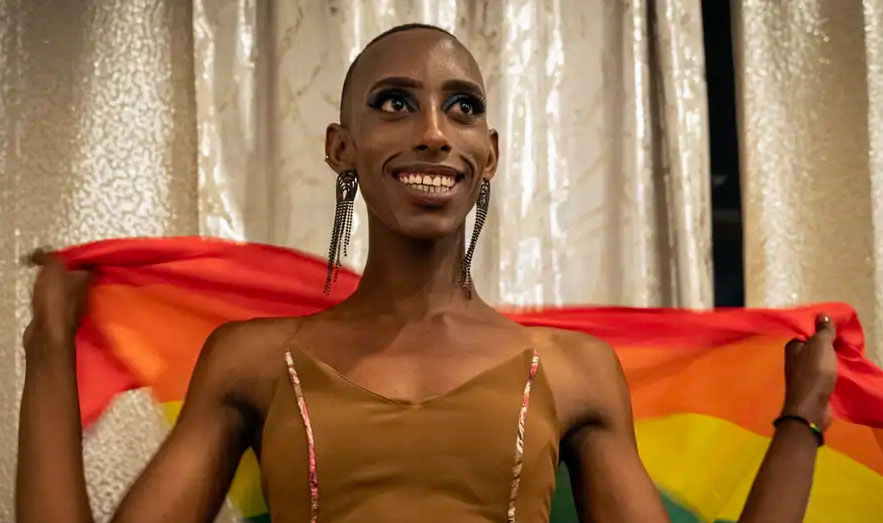Trans and intersex Rwandans struggle for basic rights and equality
Colin Stewart is a 45-year journalism veteran living in Southern…
Rwandan activists want greater legal rights for transgender and intersex people

This is an edited and abridged version of an article in DW.com:
The Central African nation of Rwanda is known for having a relatively progressive attitude toward LGBTQ+ issues, but human rights NGOs want more legal recognition and protection for transgender and intersex people to ensure they don’t suffer further discrimination and stigma.
Maily Isaro, a transgender Rwandan woman, has faced various forms of discrimination since publicly coming out as trans.
Rwanda does not criminalize same-sex relationships, however members of the LGBTQ+ community have criticized the government for not sufficiently protecting them from stigma and violence. Young people are particularly affected, and many have dropped out of school because of stigma, Isaro says.
“Most of them are forced to leave school […] because of discrimination, isolation and all those kinds of bullying at school so with most of them, their level education is still a problem,” she says.
Human rights activists in Rwanda are now pushing for legal reforms that properly recognize transgender people — those whose gender does not match the sex they were assigned at birth.
The activists also want changes that give intersex people — those who have physical sex characteristics that are not exclusively male or female — the freedom to live their lives.
They are calling for the government to amend Rwanda’s Law regarding Persons and Family that restricts the sex of a person to being male or female. The same statute states that a person’s sex is the one recorded on their birth certificate.
The law, which dates back to 2006, has hindered the rights of intersex people, according to Andre Uwayezu, founder of the Wiceceka Community Support Organization, which advocates for LGBTQ+ rights.
Intersex people are often subjected to surgeries that alter their anatomy to conform to either male or female binaries. Such procedures are often carried out during infancy without consent.
“Intersex rights are violated where they get one organ removed on the orders of their parents. This is a problem that should be looked at broadly because this is a way a person was born,” says Uwayezu.
There is nothing to suggest that Rwanda will welcome any move to amend its current LGBTQ+ laws, but Uwayezu said the country’s progressive approach toward the issue provides hope.
“I have faith in Rwanda’s tolerance, and I am sure children born this way are ours and we must create a comfortable life for them like,” he says.
Francis Byaruhanga, a Kigali-based lawyer, also harbors similar hopes of a safer environment for intersex people.
“It is possible they can change the definition of sex, which the law describes as male and female. Because of research by the UN that sex orientation can be opposite-sex or same-sex, I think the law can be reviewed so that it aligns with the times,” Byaruhanga says.




